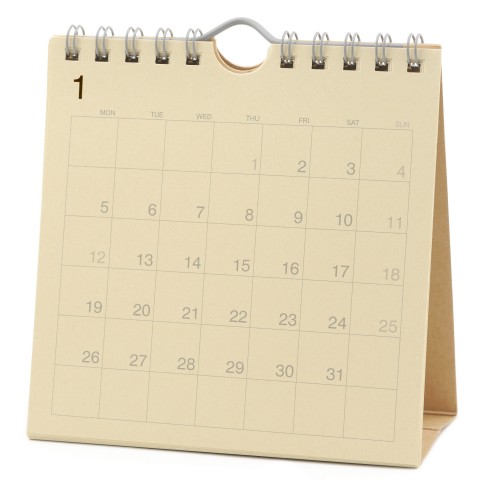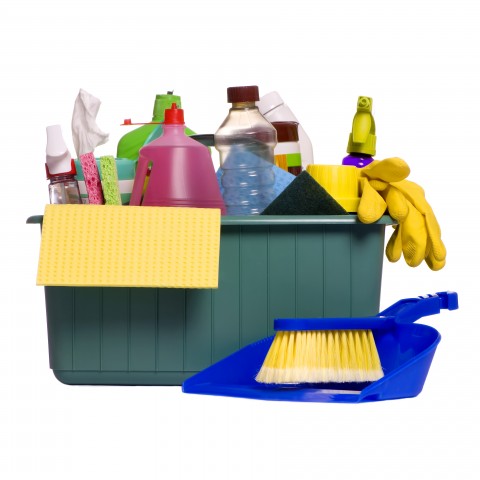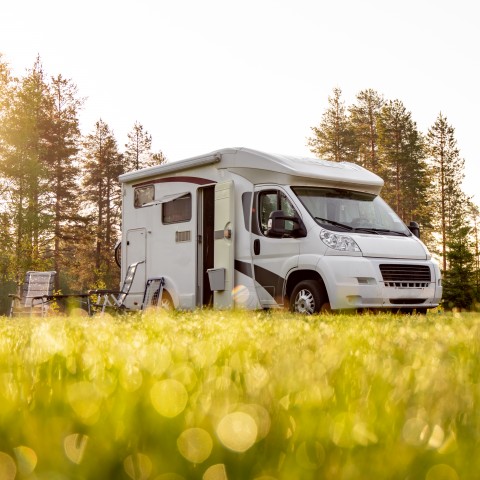
Are you ready to go from beginner to intermediate in Thai?
Once you have a good base vocabulary and understand the basic grammar rules, you should focus on acquiring more advanced words.
In this article, we’ll introduce you to the most important intermediate Thai words for learners who are ready to level up. Each word has been handpicked to provide you with a variety of terms you can use to discuss more complex topics, craft longer sentences, and express yourself more completely and accurately.
 Table of Contents
Table of Contents
1. Large Numbers
The first group of intermediate Thai words you should know are the larger numbers in Thai. You’ll use these often in daily life for things like buying or selling items.
- …เอ็ด (…-èt) = …one
- ยี่สิบ (yîi-sìp) = twenty
- ร้อย (ráauy) = hundred
- พัน (phan) = thousand
- หมื่น (mùuen) = ten thousand
- แสน (sǎaen) = hundred thousand
- ล้าน (láan) = million
- …ล้าน (…-láan) = …million
2. Nouns
As a beginner, you learned many basic nouns that allowed you to get your point across and describe the world around you. To bulk up your vocabulary, you should now focus on memorizing more advanced nouns that refer to more specific things. The intermediate Thai words below will help you talk about a greater variety of topics with native speakers.
1 – Months
Knowing the names of the months in Thai will help you set appointments, follow conversations, and more.
- เดือน (duuean) = month
- มกราคม (má-gà-raa-khom / mók-gà-raa-khom) = January
- กุมภาพันธ์ (gum-phaa-phan) = February
- มีนาคม (mii-naa-khom) = March
- เมษายน (mee-sǎa-yon) = April
- พฤษภาคม (phrúet-sà-phaa-khom) = May
- มิถุนายน (mí-thù-naa-yon) = June
- กรกฎาคม (gà-rá-gà-daa-khom) = July
- สิงหาคม (sǐng-hǎa-khom) = August
- กันยายน (gan-yaa-yon) = September
- ตุลาคม (dtù-laa-khom) = October
- พฤศจิกายน (phrúet-sà-jì-gaa-yon) = November
- ธันวาคม (than-waa-khom) = December

What is “January” in Thai?
2 – Organs and Other Body Parts
At the beginner level, you learned the names of basic body parts in Thai. Now it’s time to expand that list by learning the names of organs and more specific body parts.
- สมอง (sà-mǎawng) = brain
- กระดูก (grà-dùuk) = bone
- เส้นเอ็น (sên-en) = tender
- กล้ามเนื้อ (glâam-núuea) = muscle
- กล่องเสียง (glàawng-sǐiang) = larynx
- เส้นเลือด (sên-lûueat) = blood vessel
- เลือด (lûueat) = blood
- หลอดอาหาร (làawt-aa-hǎan) = esophagus
- หลอดลม (làawt-lom) = windpipe
- หัวใจ (hǔa-jai) = heart
- ตับ (dtàp) = liver
- ไต (dtai) = kidney
- ปอด (bpàawt) = lung
- ม้าม (máam) = spleen
- กระเพาะ (grà-páw) = stomach
- ลำไส้เล็ก (lam-sâi-lék) = small intestine
- ลำไส้ใหญ่ (lam-sâi-yài) = large intestine
- กระเพาะปัสสาวะ (grà-páw-bpàt-sàa-wá) = bladder
- กะบังลม (gà-bang-lom) = diaphragm
- มดลูก (mót-lûuk) = uterus
- ถุงน้ำดี (thǔng-nám-dii) = gallbladder
3 – Education
These words will be especially useful if you plan to study in Thailand.
- การศึกษา (gaan-sùek-sǎa) = education
- อนุบาล (à-nú-baan) = preschool
- ประถมศึกษา (bprà-thǒm-sùek-sǎa) = primary education
- มัธยมศึกษา (mát-thá-yom-sùek-sǎa) = secondary education
- ปริญญาตรี (bpà-rin-yaa-dtrii) = bachelor’s degree
- ปริญญาโท (bpà-rin-yaa-thoo) = master’s degree
- ปริญญาเอก (bpà-rin-yaa-èek) = PhD
- โรงเรียน (roong-riian) = school
- มหาวิทยาลัย (má-hǎa-wít-thá-yaa-lai) = university
- วิชา (wí-chaa) = subject
- ภาษาไทย (phaa-sǎa-thai) = Thai language
- ภาษาอังกฤษ (phaa-sǎa-ang-grìt) = English language
- ภาษา… (phaa-sǎa-…) = … language
- วิทยาศาสตร์ (wít-thá-yaa-sàat) = science
- สังคม (sǎng-khom) = social studies
- คณิตศาสตร์ (khá-nít-sàat) = mathematics
- พละ (phá-lá) = P.E.
- ศิลปะ (sǐn-lá-bpà) = art
- ดนตรี (don-dtrii) = music
4 – Places
Below are several intermediate words in Thai about places and locations.
- ทวีป (thá-wîip) = continent
- ประเทศ (bprà-thêet) = country
- ภาค (phâak) = region
- จังหวัด (jang-wàt) = province
- อำเภอ (am-phooe) = district
- เขต (khèet) = district (used in Bangkok only)
- ตำบล (dtam-bon) = sub-district
- แขวง (khwǎaeng) = sub-district (used in Bangkok only)
- หมู่บ้าน (mùu-bâan) = village
- ชุมชน (chum-chon) = community
- เกาะ (gàw) = island
- เมืองหลวง (muueang-lǔuang) = capital city
5 – Religions
Religion is an important part of life in Thailand, as our culture and lifestyle are closely tied to Buddhism. For this reason, it’s a good idea to add the names of world religions to your intermediate Thai vocabulary.
- ศาสนา (sàat-sà-nǎa) = religion
- ศาสนาพุทธ (sàat-sà-nǎa-phút) = Buddhism
- ศาสนาคริสต์ (sàat-sà-nǎa-krít) = Christianity
- ศาสนาอิสลาม (sàat-sà-nǎa-ìt-sà-laam) = Islam
- วัด (wát) = temple
- โบสถ์ (bòot) = church
- มัสยิด (mát-sà-yít) = mosque

Thai culture and lifestyle are closely tied to Buddhism.
6 – Holidays
Everybody loves holidays. They give us the opportunity to relax and spend time with loved ones. Let’s learn the names of public holidays in Thailand and around the world.
- วันหยุด (wan-yùt) = holiday
- วันปีใหม่ (wan-bpii-mài) = New Year’s Day
- วันตรุษจีน (wan-dtrùt-jiin) = Chinese New Year’s Day
- วันสงกรานต์ (wan-sǒng-graan) = Thai New Year’s Day
- วันแรงงาน (wan-raaeng-ngaan) = Labor Day
- วันแม่ (wan-mâae) = Mother’s Day
- วันพ่อ (wan-phâaw) = Father’s Day
- วันเด็ก (wan-dèk) = Children’s Day
- วันลอยกระทง (wan-laauy-grà-thong) = Loy Krathong Day
- วันสิ้นปี (wan-sîn-bpii) = New Year’s Eve
7 – Vehicles
You’ll find a number of different vehicles in the air, on the water, and throughout the streets of Thailand. Here are the names of just a few of them:
- ยานพาหนะ (yaan-phaa-hà-ná) = vehicle
- รถยนต์ (rót-yon) = car
- รถมอเตอร์ไซต์ (rót-maaw-dtooe-sai) = motorcycle
- รถตู้ (rót-dtûu) = van
- รถบรรทุก (rót-ban-thúk) = truck
- รถพ่วง (rót-phûuang) = trailer
- รถไฟ (rót-fai) = train
- รถตำรวจ (rót-dtam-rùuat) = police car
- รถถัง (rót-thǎng) = tank
- รถพยาบาล (rót-phá-yaa-baan) = ambulance
- รถดับเพลิง (rót-dàp-plooeng) = fire engine
- รถยก (rót-yók) = forklift
- เฮลิคอปเตอร์ (hee-li-kháawp-dtôoe) = helicopter
- เครื่องบิน (khrûueang-bin) = plane
- เรือ (ruuea) = boat / ship
- จักรยาน (jàk-grà-yaan) = bicycle
8 – Rooms in the House
- ห้องนอน (hâawng-naawn) = bedroom
- ห้องนั่งเล่น (hâawng-nâng-lên) = living room
- ห้องรับแขก (hâawng-ráp-khàaek) = living room
- ห้องรับประทานอาหาร (hâawng-ráp-bprà-thaan-aa-hǎan) = dining room
- ห้องครัว (hâawng-khruua) = kitchen
- ครัวเบา (khruua-bao) = pantry
- ห้องทำงาน (hâawng-tham-ngaan) = office
- ห้องน้ำ (hâawng-nám) = toilet / bathroom
9 – Furniture
Now that you know the name of each room, let’s see what we call different types of furniture in Thai.
- เฟอร์นิเจอร์ (fooe-ní-jôoe) = furniture
- เตียง (dtiiang) = bed
- โต๊ะเครื่องแป้ง (dtó-khrûueang-bpâaeng) = dressing table
- ตู้เสื้อผ้า (dtûu-sûuea-phâa) = closet
- โต๊ะ (dtóe) = table
- โต๊ะทำงาน (dtóe-tham-ngaan) = desk
- เก้าอี้ (gâo-îi) = chair
- โซฟา (soo-faa) = sofa
- ชั้นวางของ (chán-waang-khǎawng) = shelf
- ตู้ (dtûu) = cupboard
- ตู้หนังสือ (dtûu-nǎng-sǔue) = bookshelf
- ลิ้นชัก (lín-chák) = drawer
- ตู้รองเท้า (dtûu-raawng-tháo) = shoe cabinet
10 – Electrical Appliances
At the intermediate level, you should also become familiar with the names of electrical appliances in Thai. After all, these are items we use every day!
- เครื่องใช้ไฟฟ้า (khrûueang-chái-fai-fáa) = electrical appliance
- โทรทัศน์ (thoo-rá-thát) = television
- ทีวี (thii-wii) = TV
- วิทยุ (wít-thá-yú) = radio
- พัดลม (phát-lom) = fan
- ตู้เย็น (dtûu-yen) = fridge
- แอร์ (aae) = air conditioner
- เครื่องปรับอากาศ (khrûueang-bpràp-aa-gàat) = air conditioner
- หม้อหุงข้าว (mâaw-hǔng-khâao) = rice cooker
- ไมโครเวฟ (mai-khroo-wéep) = microwave
- เตาอบ (dtao-òp) = oven
- เครื่องฟอกอากาศ (khrûueang-fâawk-aa-gàat) = air purifier
- กล้องวงจรปิด (glâawng-wong-jaawn-bpìt) = CCTV
11 – Cleaning Products and Supplies
- ไม้กวาด (mái-gwàat) = broom
- ไม้ถูพื้น (mái-thǔu-phúuen) = mop
- ไม้ขนไก่ (mái-khǒn-gài) = feather duster
- ที่โกยขยะ (thîi-gooi-khà-yà) = dust pan
- ผ้าขี้ริ้ว (phâa-khîi-ríu) = cleaning cloth
- แปรงขัดพื้น (bpraaeng-khàt-phúuen) = floor brush
- แปรงขัดส้วม (bpraaeng-khàt-sûuam) = toilet brush
- ที่เช็ดกระจก (thîi-chét-grà-jòk) = glass cleaner
- ราวตากผ้า (raao-dtàak-phâa) = clothes line
- ไม้แขวนเสื้อ (mái-kwǎaen-sûuea) = hanger
- ไม้หนีบผ้า (mái-nìip-phâa) = clothes pin
- เครื่องดูดฝุ่น (khrûueang-dùut-fùn) = vacuum cleaner
- เครื่องซักผ้า (khrûueang-sák-phâa) = washing machine
- เครื่องอบผ้า (khrûueang-òp-phâa) = dryer
- เตารีด (dtao-rîit) = iron
- น้ำยาถูพื้น (nám-yaa-thǔu-phúuen) = floor cleaning liquid
- น้ำยาล้างจาน (nám-yaa-láang-jaan) = dish cleaning liquid
- น้ำยาล้างห้องน้ำ (nám-yaa-láang-hâawng-nám) = bathroom cleaning liquid
- น้ำยาเช็ดกระจก (nám-yaa-chét-grà-jòk) = glass cleaning liquid
- น้ำยาอเนกประสงค์ (nám-yaa-à-nèek-bprà-sǒng) = multi-purpose cleaning liquid
- ผงซักฟอก (phǒng-sák-fâawk) = detergent
- น้ำยาซักผ้า (nám-yaa-sák-phâa) = clothes cleaning liquid
- น้ำยาปรับผ้านุ่ม (nám-yaa-bpràp-phâa-nûm) = fabric softener

What are these cleaning products called in Thai?
3. Verbs
Our next list consists of essential verbs in Thai for intermediate learners. Memorizing these more advanced action words will allow you to better express yourself and add nuance to your conversations.
1 – In the Kitchen
What do you do in the kitchen? This is the perfect list for those who love cooking!
- ทำอาหาร (tham-aa-hǎan) = to cook
- ล้าง (láang) = to wash
- หั่น (hàn) = to chop
- หั่นลูกเต๋า (hàn-lûuk-dtǎo) = to dice
- หั่นเป็นเส้น (hàn-bpen-sên) = to julienne
- สับ (sàp) = to chop
- แล่ (lâae) = to slice
- ปอก (bpàawk) = to peel
- ปรุงรส (bprung-rót) = to season
- บด (bòt) = to mince
- ดอง (daawng) = to pickle
- ผสม (phà-sǒm) = to mix
- คน (khon) = to stir
- พลิก (phlík) = to flip
- เท (thee) = to pour
- ใส่ (sài) = to put…in
- ตอก (dtàawk) = to crack (used for eggs only)
- นวด (nûuat) = to knead
- ผัด (phàt) = to stir fry
- ทอด (thâawt) = to fry
- ต้ม (dtôm) = to boil
- ตุ๋น (dtǔn) = to simmer
- อบ (òp) = to bake
- ย่าง (yâang) = to grill
- นึ่ง (nûeng) = to steam
2 – Giving Directions
Another key set of Thai vocabulary for intermediate learners is words for giving and asking for directions. The following words will help you offer and understand more complex instructions.
- ตรงไป (dtrong-bpai) = go straight
- เลี้ยว (líiao) = to turn
- กลับรถ (glàp-rót) = to make a U-turn
- กลับหลังหัน (glàp-lǎng-hǎn) = to turn around
- หยุด (yùt) = to stop
- ขึ้น (khûen) = to go up
- ลง (long) = to go down
- ไปที่… (bpai-thîi) = to go to…

How do I get to the hotel?
3 – Learning
- เรียน (riian) = to learn
- คิด (khít) = to think
- วิเคราะห์ (wí-khráw) = to analyze
- อ่าน (àan) = to read
- เขียน (khǐian) = to write
- ฟัง (fang) = to listen
- พูด (phûut) = to speak
- วาด (wâat) = to draw
- ระบายสี (rá-baai-sǐi) = to paint
- จด (jòt) = to take notes
- ทดลอง (thót-laawng) = to do an experiment
- แต่ง (dtàaeng) = to compose
- ทำงานกลุ่ม (tham-ngaan-glùm) = to do group work
- ทำการบ้าน (tham-gaan-bâan) = to do homework
- ทำรายงาน (tham-raai-ngaan) = to do a report
- ทบทวน (thóp-thuuan) = to revise
- ท่อง (thâawng) = to memorize
- ฝึกฝน (fùek-fǒn) = to practice
- เตรียมสอบ (dtriiam-sàawp) = to prepare for a test
- สอบ (sàawp) = to take a test
- ส่งงาน (sòng-ngaan) = to turn in (work / homework / report)
4 – Interactions Between People
- ทักทาย (thák-thaai) = to greet
- ไหว้ (wâi) = Thai style of greeting
- กราบ (gràap) = to prostrate
- กอด (gàawt) = to hug
- พูดคุย (phûut-khui) = to talk
- หารือ (hǎa-ruue) = to discuss
- ทะเลาะ (thá-láw) = to quarrel
- ปลอบโยน (bplàawp-yoon) = to console
- ตะโกน (dtà-goon) = to shout
- ต่อสู้ (dtàaw-sûu) = to fight
5 – Hobbies
Here are the verbs we use to describe the most popular hobbies in Thailand:
- อ่านหนังสือ (àan-nǎng-sǔue) = to read a book
- ฟังเพลง (fang-phleeng) = to listen to music
- เล่นดนตรี (lên-don-dtrii) = to play a musical instrument
- สะสม… (sà-sǒm) = to collect…
- วาดรูป (wâat-rûup) = to draw
- ถ่ายรูป (thàai-rûup) = to take a photo
- ทำอาหาร (tham-aa-hǎan) = to cook
- ดูหนัง (duu-nǎng) = to watch a movie
- ท่องเที่ยว (thâawng-thîiao) = to travel
- ตั้งแคมป์ (dtâng-kháaem) = to camp
- ปั่นจักรยาน (bpàn-jàk-grà-yaan) = to cycle
- เต้นรำ (dtên-ram) = to dance
- ตกปลา (dtòk-bplaa) = to fish
- ทำสวน (tham-sǔuan) = to garden
- เล่นเกมส์ (lên-geem) = to play a game
- ซื้อของ (súue-khǎawng) = to go shopping
- เล่นกีฬา (lên-gii-laa) = to play a sport
- ดำน้ำ (dam-nám) = to go snorkeling
- ร้องเพลง (ráawng-phleeng) = to sing

Camping is a popular hobby in Thailand.
4. Adjectives / Adverbs
A fun way to expand your Thai vocabulary as an intermediate learner is to pick up a few adjectives and adverbs. These words will help you express your thoughts and feelings in greater detail.
- → If you would like to learn even more of these useful words, make sure to visit our blog posts on Thai adjectives and Thai adverbs.
1 – Describing Food
- จืด (jùuet) = blend
- เค็ม (khem) = salty
- หวาน (wǎan) = sweet
- เผ็ด (phèt) = spicy
- เปรี้ยว (bprîiao) = sour
- ขม (khǒm) = bitter
- อร่อย (à-ràauy) = delicious
- กลมกล่อม (glom-glàawm) = flavorful
- เลี่ยน (lîian) = oily / greasy
- ไม่อร่อย (mâi-à-ràauy) = not delicious
- ดิบ (dìp) = raw
- สุก (sùk) = ripe
2 – Describing Personality
- ดี (dii) = good
- ไม่ดี (mâi-dii) = bad
- ใจดี (jai-dii) = kind
- ใจร้าย (jai-ráai) = mean
- สุภาพ (sù-phâap) = polite
- หยาบคาย (yàap-khaai) = rude
- ช่างพูด (châang-phûut) = talkative
- เงียบ ๆ (ngîiap-ngîiap) = quiet
- ร่าเริง (râa-rooeng) = cheerful
- มองโลกในแง่ดี (maawng-lôok-nai-ngâae-dii) = optimistic
- มองโลกในแง่ร้าย (maawng-lôok-nai-ngâae-ráai) = pessimistic
- ตลก (dtà-lòk) = funny
- น่าเบื่อ (nâa-bùuea) = boring
- ง่าย ๆ (ngâai-ngâai) = easygoing
- เรื่องมาก (rûueang-mâak) = demanding
- ขี้ลืม (khîi-luuem) = forgetful
- มีความคิดสร้างสรรค์ (mii-kwaam-khít-sâang-sǎn) = creative
- ก้าวร้าว (gâao-rǎao) = aggressive
- เข้มงวด (khêm-ngûuat) = strict
- เห็นแก่ตัว (hěn-gàae-dtuua) = selfish
- ขี้เหนียว (khîi-nǐiao) = stingy

She is a cheerful and kind person.
3 – Describing Frequency
- เสมอ (sà-mǒoe) = always
- บ่อย ๆ (bàuuy-bàuuy) = often
- เป็นประจำ (bpen-bprà-jam) = usually
- บางครั้ง (baang-khráng) = sometimes
- นาน ๆ ครั้ง (naan-naan-khráng) = rarely
- ไม่เคย (mâi-khooei) = never
4 – Describing Clothes
- พอดี (phaaw-dii) = fit
- หลวม (lǔuam) = too big
- คับ (kháp) = too small
- ใส่สบาย (sài-sà-baai) = comfortable
- ทันสมัย (than-sà-mǎi) = fashionable
- เชย (chooei) = old-fashioned
- โป๊ (bpóo) = revealing

This is too tight for me.
5 – Describing Movies
Who loves watching movies? If you’re a cinema buff, you’ll find these words very useful.
- ดราม่า (draa-mâa) = drama
- แอ็คชั่น (áaek-chân) = action
- บู๊ (búu) = action
- ครอบครัว (khrâawp-khruua) = family
- ระทึกขวัญ (rá-thúek-khwǎn) = thriller
- สารคดี (sǎa-rá-khá-dii) = documentary
- การ์ตูน (gaa-tuun) = animation
- แฟนตาซี (faaen-dtaa-sii) = fantasy
- สยองขวัญ (sà-yǎawng-khwǎn) = horror
- วิทยาศาสตร์ (wít-thá-yaa-sàat) = scientific
- โรแมนติก (roo-maaen-dtìk) = romantic
- ตลก (dtà-lòk) = comedy
5. Prepositions
Prepositions make up an essential set of intermediate words in Thai. Learning them will allow you to make your statements clearer and give additional information where needed.
- คำบุพบท (kham-bùp-phá-bòt) = preposition
- ใน (nai) = inside
- นอก (nâawk) = outside
- ใต้ (dtâi) = under
- บน (bon) = above
- ใกล้ (glâi) = near
- ไกล (glai) = far from…
- จน (jon) = until
- ตั้งแต่ (dtâng-dtàae) = from
- ตั้งแต่…ถึง… (dtâng-dtàae-…-thǔeng-…) = from…until…
- ของ (khǎawng) = of (possession)
- เพื่อ (phûuea) = for + verb
- สำหรับ (sǎm-ràp) = for + person
- โดย (dooi) = by
6. Conjunctions
- คำสันธาน (kham-sǎn-thaan) = conjunction
- พอ…ก็… (phaaw-…-gâaw-…) = When A happens, B happens.
- ถึง…ก็… (thǔeng-…-gâaw-…) = Although A happens, B happens.
- แม้…ก็… (máae-…-gâaw-…) = Although A happens, B happens.
- เพราะ…จึง… (phráw-…-jueng-…) = Because A happens, B happens.
- …ดังนั้น…จึง… (…dang-nán-…-jueng-…) = A happens, so B happens.
- มิฉะนั้น (mí-chà-nán) = or else
7. Interjections
Using interjections can make a conversation sound more natural and help you express your feelings more clearly.
- คำอุทาน (kham-ù-thaan) = interjection
- โอ๊ย (óoi) = interjection for when you get hurt
- โอย (ooi) = interjection for when you get hurt
- เฮ้ย (hóoei) = interjection for when you’re surprised (male)
- ว้าย (wáai) = interjection for when you’re surprised (female)
- โว้ย (wóoi) = interjection for when you’re angry
- โธ่ (thôo) = interjection to show that you feel pity
8. Conclusion
Congratulations! You’ve now learned not only beginner vocabulary, but also the essential intermediate Thai words.
This might seem like a lot of vocabulary to pick up, but your efforts will be well worth it. Did you find this article difficult? If you need any help or encouragement, feel free to drop us a comment below or check out our article on how to overcome the most common difficulties in Thai language learning.
While you’re waiting for our upcoming article on advanced Thai words, we recommend you go through our intermediate Thai course to become familiar with more advanced grammar structures, vocabulary, and cultural concepts. You can also explore our other exciting lessons, such as…
Create your free lifetime account on ThaiPod101.com to gain complete access to our courses, lessons, and other learning materials.
See you soon!










